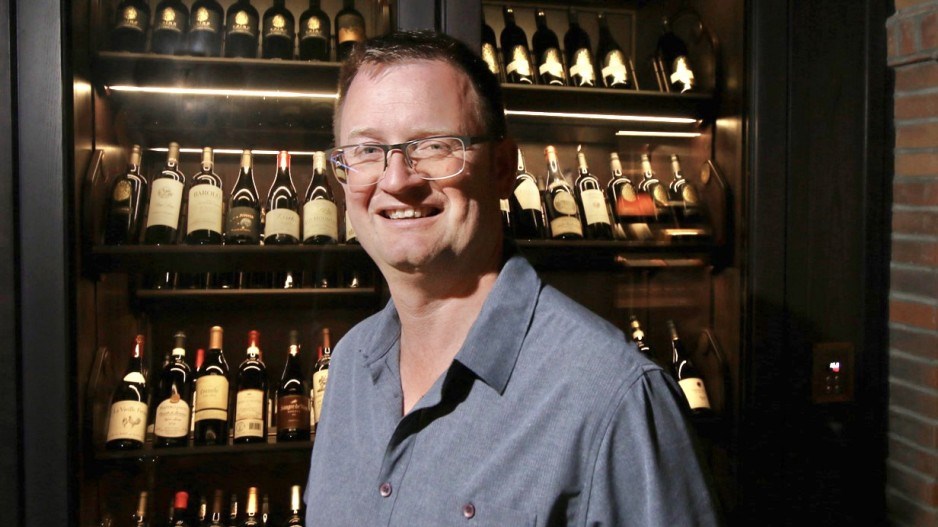Winemakers are looking to new technologies to navigate challenges that stem from climate change as well as to enable their wineries to operate as efficiently as possible.
Some innovations aim to eliminate smoke taint while others, such as optical sorters and filtering technology aim to make the wine-making process more efficient.
“Technology just makes everything possible,” rapidly expanding Frind Estate Winery's owner Markus Frind told BIV.
Some of Frind’s investments are in things that have become common in the industry. His investment in optical sorters, for example, mean that as his grapes move along conveyor belts, they are separated into two paths: one for ripe grapes and the other for grapes that are not yet ready to use to make wine. Large wineries often use this technology.
Computerized fermentation tanks are another innovation, he said, as it enables him to control the exact temperature at which his wine is stored.
The biggest innovation he has invested in, however, is likely a stabilization unit that uses electrodialysis to remove potassium from grape juice and is called STARS (Selective Tartrate Removal System.)
“It’s like a million dollars for the machine,” Frind said. “Instead of taking your wine down to freezing for a month, we just pass it through this machine and it removes the potassium so you don't get wine crystals.”
Winemakers’ traditional method to filter wine so the finished product does not contain crystals is to take the wine to near the freezing mark and keep it at that temperature for up to a month. Crystals then form in the wine and sink to the bottom of the tank, Frind explained. Winemakers filter out the crystals.
“When you do that, in filtration, you lose about 3 per cent of the wine,” he said. “We lose 0.3 per cent, using this [STARS] machine.”
That efficiency means that he has more wine to bottle and sell.
Most B.C. winery owners have yet to splurge on buying STARS technology, likely because of the upfront cost, Frind said.
This has, however, created a business opportunity for Cellar Dweller, said that business’ principal Robert Kwakernaak.
His 10-employee, 11-year-old business has one mobile STARS unit that he is able to bring to wineries to help them clarify wine using electrodialysis.
Cellar Dweller also offers a range of other mobile services.
“There are not a lot of wineries that have the systems that we have,” Kwakernaak said. “We have five technologies that we offer in the Okanagan. STARS is just one of them.”
Two of his technologies help winemakers remove smoke taint.
One of those uses reverse osmosis, he said.
His other smoke-taint removal technology uses what he called “a molecularly imprinted resin.”
Signorello Estate winery owner Ray Signorello told BIV that while it is increasingly common in the industry to use chemicals, such as bentonite, to try to remove smoke taint, the end result can be mixed.
Signorello’s winery is in Napa Valley but he lives much of the year in West Vancouver.

(Image: Napa Valley's Signorello Estate winery's owner, Ray Signorello, lives much of the year in West Vancouver | Chung Chow)
He said bentonite technology is not yet at a point where it is worth using, particularly on red wines, which are his specialty.
In 2020, California endured a bad forest-fire season and many of Signorello’s grapes were affected.
Instead of trying to remove the smoke taint, he simply dumped the juice and did not make any of his Edge, S or Signorello Estate branded wines. The only wine he made that year were from other vineyards, or locations in California, such as Lodi.
Smoke taint, caused by smoke from raging wildfires is only one effect of climate change that winemakers are grappling with. Temperatures in the Okanagan plunged below 30C for a prolonged spell in December, killing many grape vines. The result is that the industry expects the 2023 harvest to be less than half of what it would be in a normal year.




